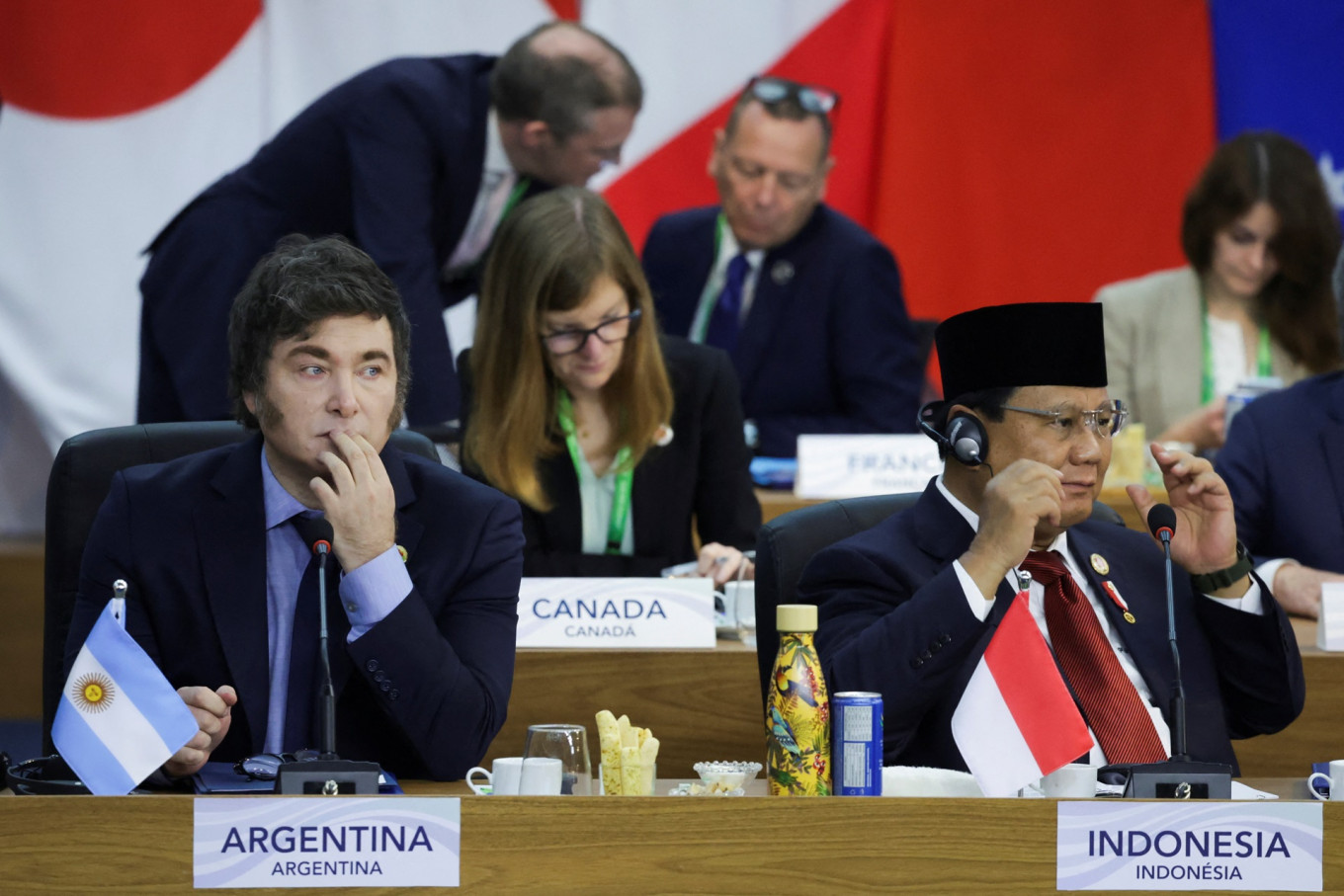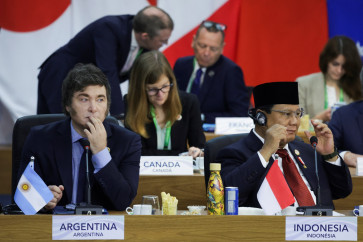Popular Reads
Top Results
Can't find what you're looking for?
View all search resultsPopular Reads
Top Results
Can't find what you're looking for?
View all search resultsG20 Brazil: Lessons for an effective cooperation platform
Tensions between G20 members have shifted the group’s attention from substantive discussions to political diplomacy.
Change text size
Gift Premium Articles
to Anyone

The Group of 20 (G20) Summit under Brazil’s presidency recently concluded and was considered successful in securing commitments from members despite difficult circumstances.
While the G20 has been instrumental in responding to global crises, the forum has struggled to maintain the same level of effectiveness in addressing recent crises such as the COVID-19 pandemic, or delays in handling global health security and climate finance issues.
The group that gathers the world’s 20 largest economies is facing two main challenges: Maintaining focus and navigating geopolitical complexities. In practice, however, the forum’s agenda has expanded far beyond its original objectives of ensuring economic stability, now covering a wide range of issues from trade and development to gender equality and disaster risk reduction.
Under Brazil’s presidency, there were 15 working groups under the Sherpa Track and 10 task forces under the Finance Track. While this reflects the G20’s adaptability, it risks losing focus on critical economic problems facing the world.
Geopolitical tensions, such as the prolonged Russia-Ukraine conflict and the bitter United States-China rivalry, have further complicated the process within the group. These tensions have often shifted the group’s attention from substantive discussions to political diplomacy. Differences between developing and developed countries within the group have also slowed progress on shared goals like fighting climate change.
Those two challenges could be observed in Brazil’s G20 presidency. Carrying the theme “Building a Just World and a Sustainable Planet”, Brazil focused on three priorities: Social inclusion and the fight against hunger; the energy transition and sustainable development; and reforming global governance institutions.
These priorities signaled a shift toward highlighting the needs of developing nations.



















